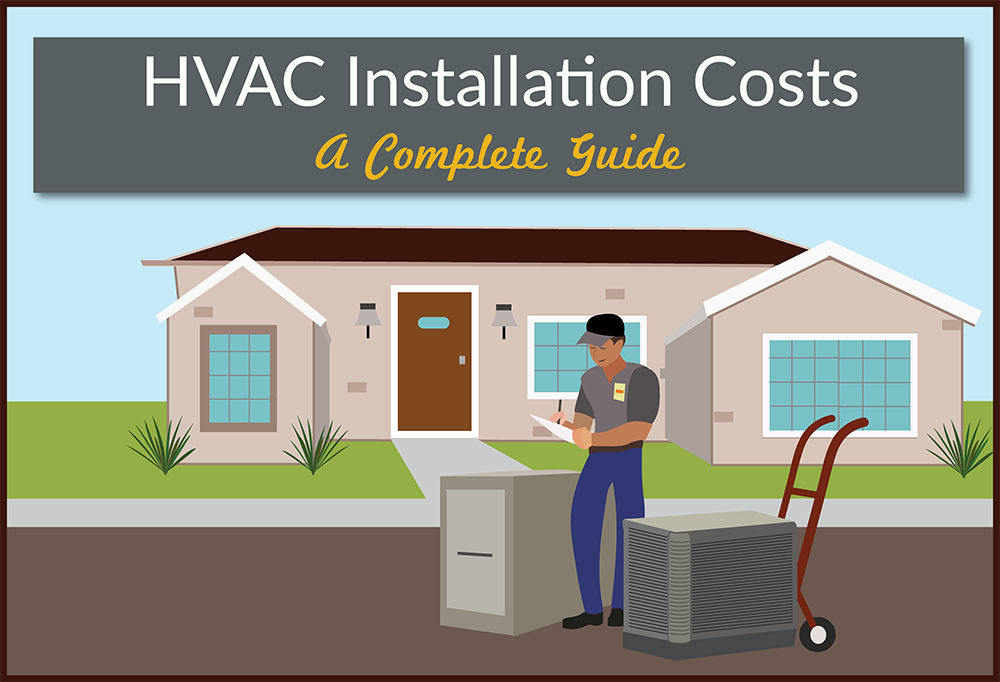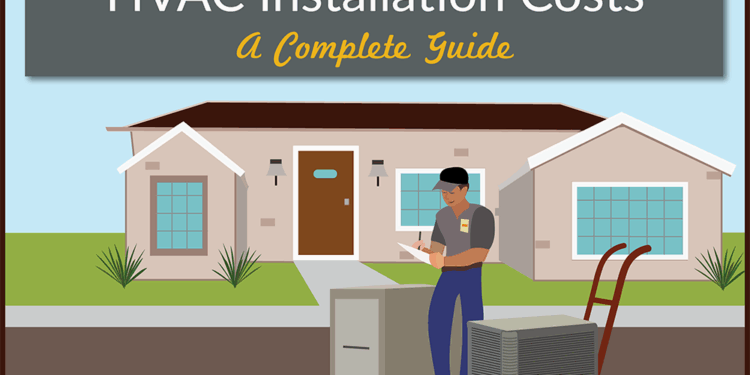Delving into the realm of HVAC repair cost opens up a world of considerations and insights. From the factors influencing repair expenses to the average costs across different systems, this topic sheds light on a crucial aspect of homeownership. Let's explore the intricacies of HVAC repair costs and discover valuable information to navigate this essential area with confidence.

Factors affecting HVAC repair cost
When it comes to HVAC repairs, several factors can influence the overall cost. Understanding these factors can help homeowners anticipate expenses and take proactive measures to minimize repair costs.
1. Type of Repair Needed
- The complexity and type of repair required can significantly impact the cost of HVAC repairs. For example, replacing a simple part like a thermostat may cost less compared to fixing a major component like the compressor.
- Scenario: A homeowner facing issues with their HVAC system's blower motor may incur higher repair costs due to the complexity of the repair.
- To mitigate this factor, homeowners can schedule regular maintenance to identify and address minor issues before they escalate into major repairs.
2. Age and Condition of the HVAC System
- An older HVAC system or one that has not been well-maintained is more likely to require frequent repairs, leading to higher overall costs.
- Scenario: A neglected HVAC system that has not been serviced regularly may experience breakdowns more often, resulting in increased repair expenses.
- Homeowners can reduce repair costs by investing in regular maintenance and inspections to keep their HVAC system in optimal condition.
3. Availability of Parts
- The availability and cost of replacement parts can impact repair expenses. Rare or custom parts may be more expensive and difficult to source, leading to higher repair costs.
- Scenario: If a specific part of an HVAC system needs to be imported or is no longer in production, the repair cost may increase significantly.
- To mitigate this factor, homeowners can work with reputable HVAC professionals who have access to a wide range of parts and can offer cost-effective solutions.
Average HVAC repair costs
When it comes to HVAC repair costs, it's essential to have a good understanding of how much you might need to budget for these services. Let's take a closer look at the average costs of HVAC repairs, including variations based on the type of system and region.
Average Costs for Different Types of HVAC Systems
Here is a breakdown of the average repair costs for different types of HVAC systems:
- Central Air Systems: The average cost to repair a central air system ranges from $150 to $1,500, depending on the issue.
- Ductless HVAC Systems: Repairs for ductless systems typically range from $100 to $1,000, depending on the complexity of the problem.
- Heat Pumps: Repair costs for heat pumps can vary widely, with an average range of $150 to $900.
Regional Variations in HVAC Repair Costs
It's important to note that HVAC repair costs can vary significantly based on your location. Here are some average costs based on region:
| Region |
Average Repair Cost |
| Midwest |
$200
$1,200
|
| Northeast |
$250
$1,500
|
| South |
$150
$1,000
|
| West |
$180
$1,300
|
Breakdown of Costs for Common HVAC Repair Services
Here is a breakdown of the average costs for common HVAC repair services:
- Refrigerant Leak Detection and Repair: $200 - $1,500
- Thermostat Replacement: $100 - $300
- Compressor Replacement: $1,500 - $2,500
- Evaporator Coil Replacement: $650 - $1,200
DIY vs
. Professional HVAC repair costs
When it comes to HVAC repairs, homeowners often face the decision of whether to tackle the issue themselves or hire a professional. Both options come with their own set of costs, risks, and benefits. Let's explore the differences between DIY and professional HVAC repair costs to help you make an informed decision.
Cost Comparison
- DIY HVAC repairs typically cost less upfront since you won't have to pay for labor fees. You only need to purchase the necessary parts and tools.
- On the other hand, professional HVAC repair costs can be higher due to labor charges. However, professionals have the expertise to diagnose and fix the issue correctly the first time.
Risks and Benefits
- DIY repairs can save you money, but they come with the risk of making mistakes that could lead to more costly repairs down the line.
- Professional repairs ensure that the job is done correctly, but you'll need to pay for their expertise and services.
When to DIY and When to Call a Professional
- Simple tasks like changing air filters or cleaning vents can be done DIY, saving you money.
- For complex issues like refrigerant leaks or electrical problems, it's best to call a professional to avoid causing further damage.
Cost-Saving Strategies
- For DIY repairs, compare prices of parts from different suppliers to find the best deal.
- When hiring a professional, get quotes from multiple HVAC companies to ensure you're getting a fair price.
Tips to reduce HVAC repair costs
Regular maintenance of your HVAC system is crucial in order to avoid costly repairs in the future. By following these preventative tips, you can help minimize the need for major repairs and save money in the long run.
Regular Servicing for Lower Long-term Repair Expenses
- Schedule annual maintenance checks with a professional HVAC technician to ensure your system is running efficiently.
- Change air filters regularly to prevent dust and debris from clogging the system, leading to breakdowns.
- Keep the area around your outdoor unit clear of debris and vegetation to allow for proper airflow.
Selecting Energy-efficient HVAC Systems
- Invest in energy-efficient HVAC systems that are designed to operate more efficiently, reducing the risk of frequent breakdowns.
- Look for systems with high SEER (Seasonal Energy Efficiency Ratio) ratings to ensure optimal performance and lower energy consumption.
- Consider programmable thermostats to regulate temperature settings and reduce energy usage when the system is not in use.
Importance of Timely Repairs
- Address any minor issues with your HVAC system promptly to prevent them from escalating into major, more costly repairs.
- Regularly check for leaks, unusual noises, or odors coming from your system and seek professional help if needed.
- Timely repairs can help extend the lifespan of your HVAC system and prevent further damage, saving you money in the long term.
Closure
As we wrap up our discussion on HVAC repair costs, it becomes evident that awareness and proactive measures can significantly impact your budget. By understanding the factors at play, comparing average costs, weighing DIY versus professional options, and implementing cost-saving tips, homeowners can better manage their HVAC repair expenses.
Stay informed, stay prepared, and ensure your HVAC system remains in top-notch condition for years to come.
FAQ Explained
How can regular servicing help in lowering long-term repair expenses?
Regular servicing can identify potential issues early on, allowing for timely repairs that prevent larger, more costly problems down the line.
What are some cost-saving strategies for DIY HVAC repairs?
Researching and understanding the repair process thoroughly before attempting it yourself can help save costs by avoiding mistakes and unnecessary expenses.
Are there significant regional variations in HVAC repair costs?
Yes, HVAC repair costs can vary based on factors like local labor rates, availability of parts, and even climate conditions that impact system wear and tear.
















